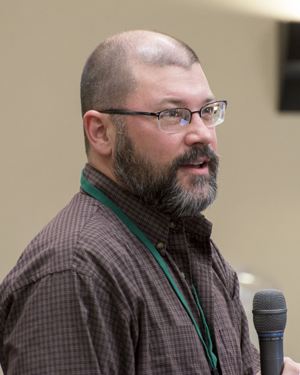Dr. Nathan Moore

BIOGRAPHY
Dr. Nathan Moore is an associate Professor in the Geography Department at Michigan State University with joint appointments at the Center for Global Change and Earth Observations and with MSU AgBioResearch. Dr. Moore is also a brainstormer for climate change impacts, and speaks frequently across Michigan about climate effects on health and agriculture.
RESEARCH INTERESTS
Dr. Moore’s research activities focus on understanding land surface processes and their impacts on atmospheric dynamics. He also has a strong commitment to translating research results to the next generation of students. These two elements are reflected in several aspects of his work over the past several years. As a Peace Corps volunteer, Dr. Moore frequently used discovery-learning techniques to help secondary school students practice the basics of the scientific method. As a scientist he has focused on examining land-atmosphere interactions, beginning with a study of the effects of irrigation on enhancing rainfall in the Texas High Plains.
More recently he has studied the effects of land use change on East African climate using innovative interdisciplinary techniques for incorporating/refining socioeconomic data in an atmospheric model. An NASA-funded project for Amazon basin research also examines the socioeconomic impacts on land cover and its consequent effects on rainfall, where he is attempting to determine the range of uncertainty in precipitation associated with Amazon deforestation rates. These examples illustrate different aspects of an overall approach to integrated problem-solving. By incorporating land use/land cover change data and remote sensing with regional climate dynamics, and by communicating our methods to a broader audience, Dr. Moore hopes to form the groundwork for better interdisciplinary cooperation between the social and natural sciences.
CURRENT PROJECTS
Dr. Moore has active research funded by NASA, NSF, USAID, and the US EPA. His recent research aims at modeling integrated systems and understanding why these coupled systems fail. His main areas of research are in regions experiencing rapid changes in both social and environmental dimensions— primarily East Africa, semiarid regions of China and Asia, and the Amazon Basin.
One such project is "A Team for Coupled Human and Environmental MacroSystems (TeamCHEMS) in a Changing Globe"

